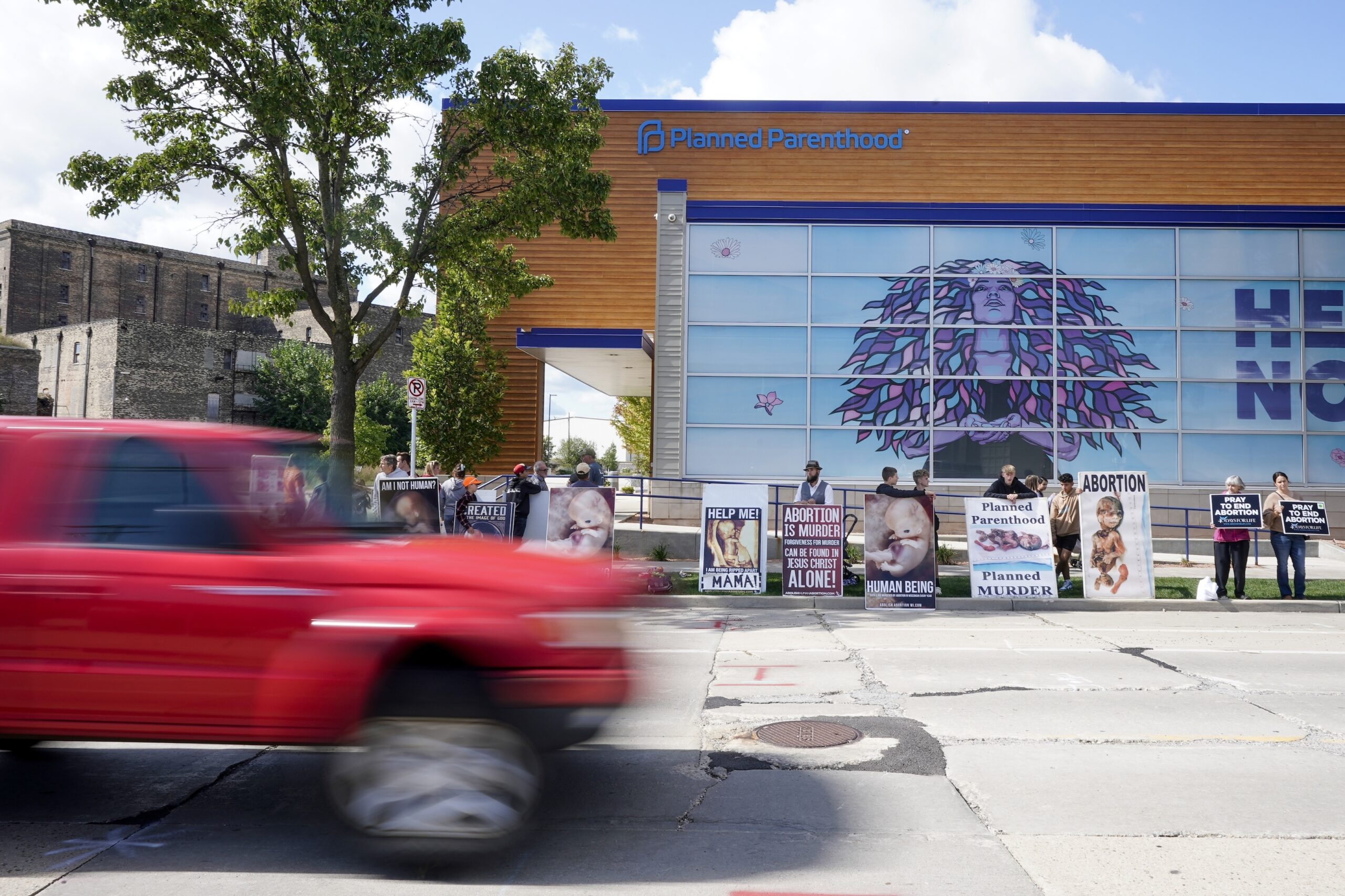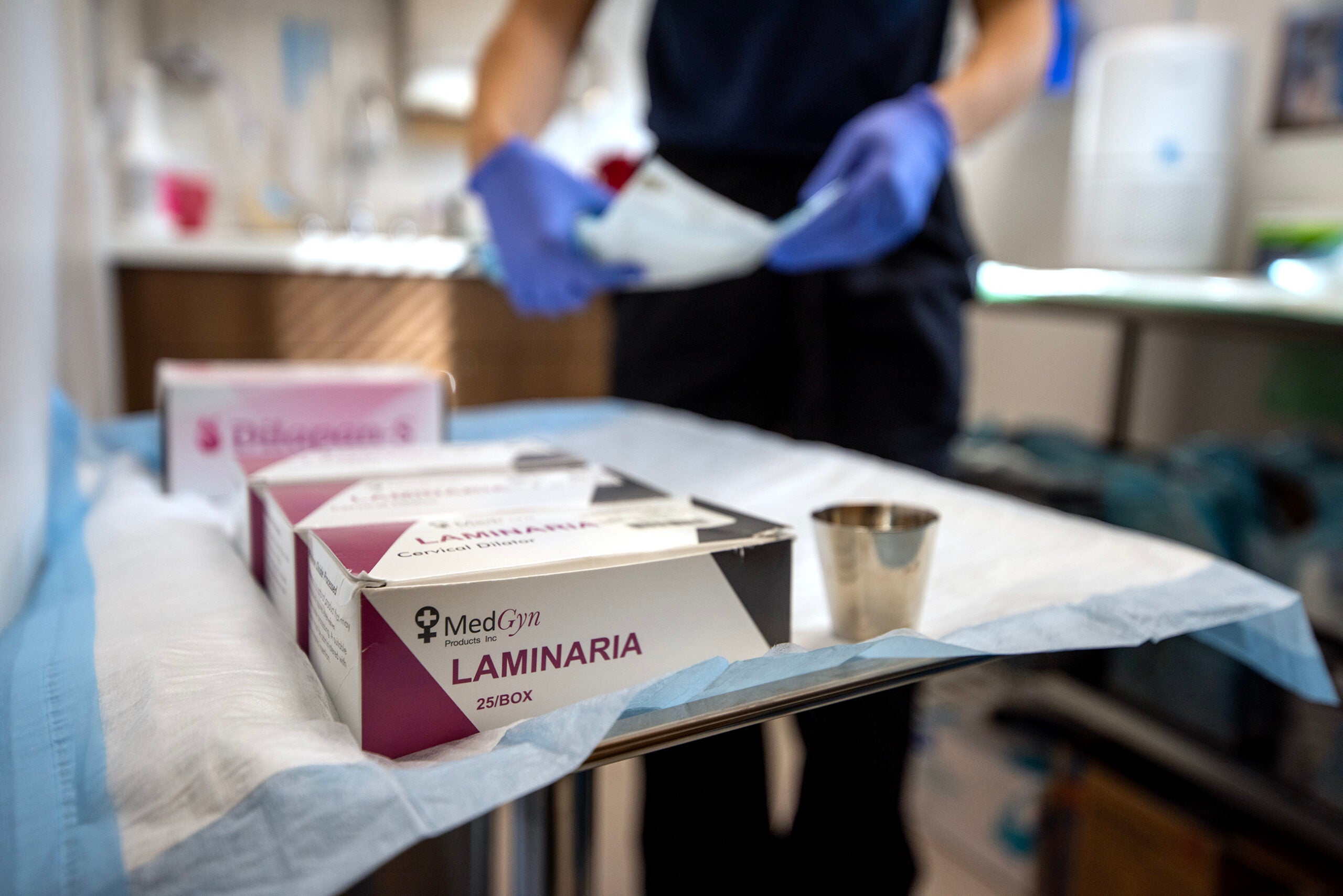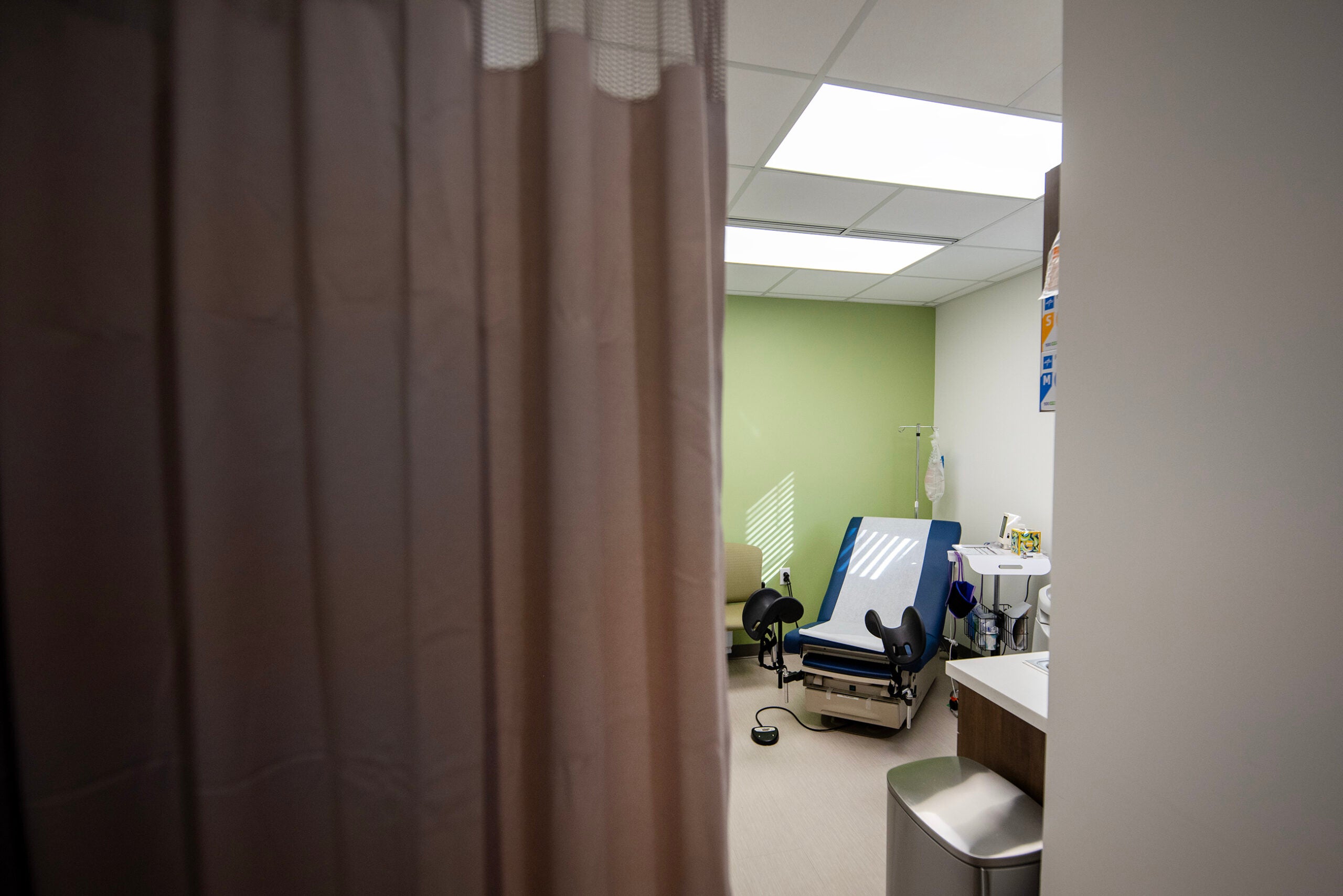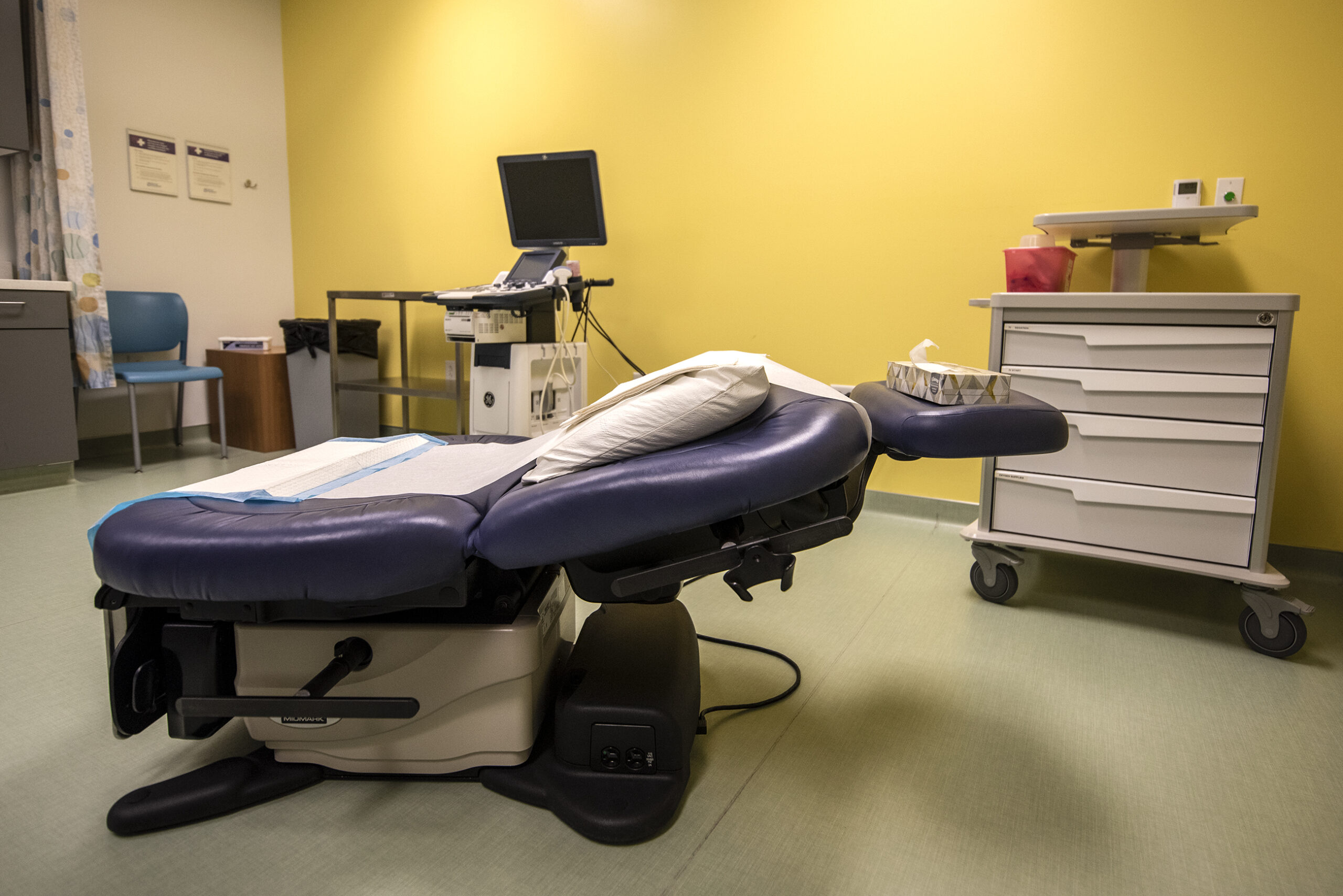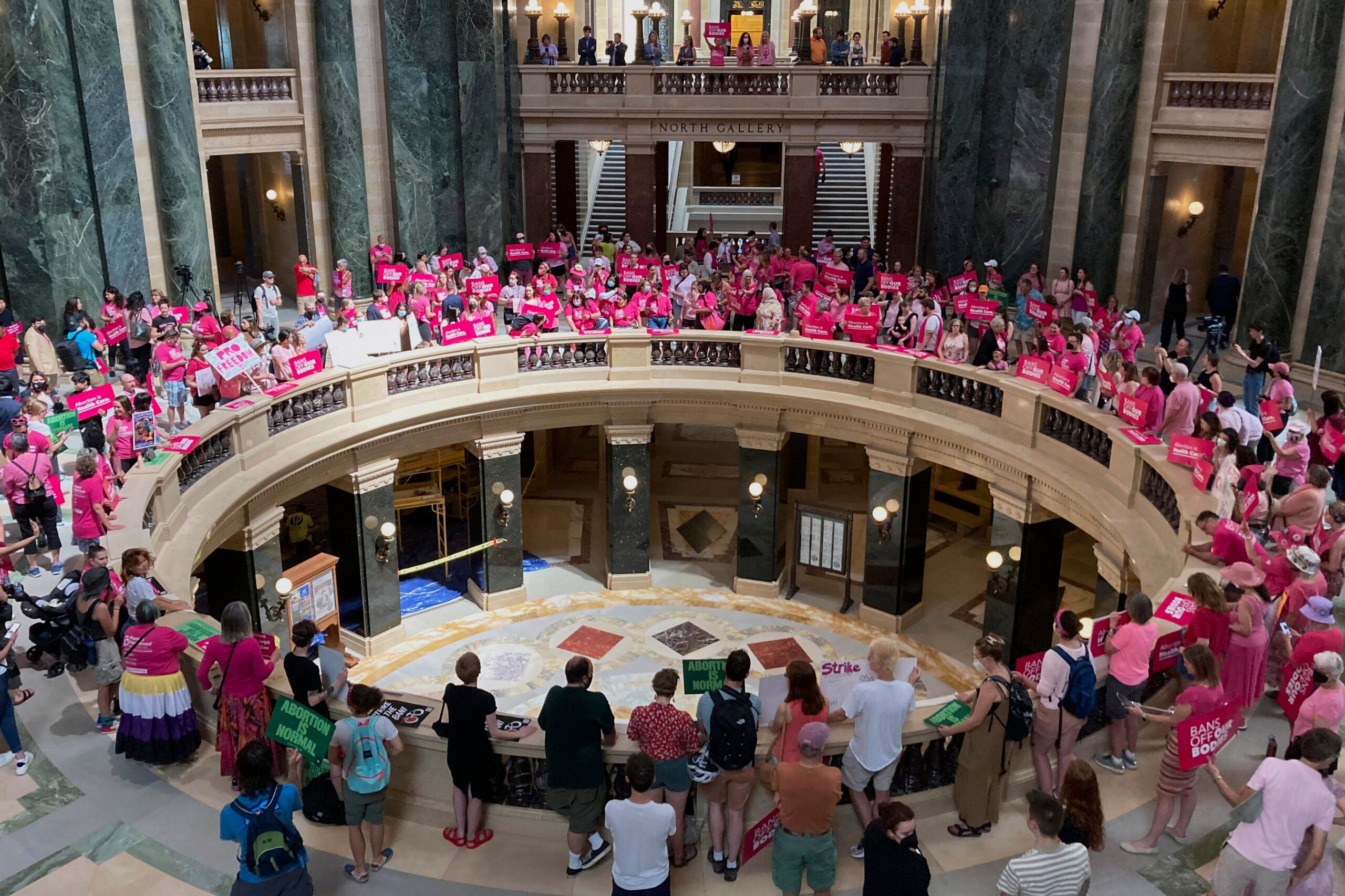Republicans in the state Assembly approved a bill Thursday that would ask voters whether to restrict abortion in Wisconsin after 14 weeks, but Gov. Tony Evers has said he’ll veto the proposal before it reaches the ballot box.
The bill was approved 53-46, with 11 Republicans joining all Democrats in opposing the bill, albeit for different reasons. Democrats argued in support of abortion access; Republican opponents argued that 14 weeks of legal abortion is still 14 weeks too many.
The bill’s author, Rep. Amanda Nedweski, R-Pleasant Prairie, said she did not expect the proposal to survive Evers’ veto pen, but she wanted to bring the subject to voters at a time when the legal status of abortion in Wisconsin is pending in state court.
News with a little more humanity
WPR’s “Wisconsin Today” newsletter keeps you connected to the state you love without feeling overwhelmed. No paywall. No agenda. No corporate filter.
“A referendum puts the power back in the hands of the people where it belongs,” she said Thursday.
Earlier this week, Evers said at his State of the State address that he would veto any bill aimed at limiting reproductive access. He reiterated that idea on social media Thursday.
“The people of Wisconsin have already made themselves clear on this issue, and so have I,” he wrote. “I promised to veto any bill that takes away Wisconsinites’ reproductive freedom or makes reproductive healthcare any less accessible than it is today. I’ll keep that promise.”
The measure would still need to pass the Senate before it gets to Evers’ desk.
The bill would place a referendum on Wisconsinites’ April ballot asking to further restrict abortion access down from the current cap of 20 weeks. It was introduced last week and received a public hearing on Monday, at which both opponents and supporters of abortion criticized the proposal.
Democrats argued that abortion is a personal choice and the government should not weigh in.
“When we trust people to work with their doctors, within their faith, within their family, within their community, people make the choices that are right for them,” said Rep. Kristina Shelton, D-Green Bay. “At the end of the day, if you don’t want to have an abortion, you don’t have to. That’s the beauty of having control over your body.”
Republican supporters of the bill said it’s a way of taking the temperature of the electorate.
Rep. Angie Sapik, R-Lake Nebagamon, described her own politics as being in the “muddy middle” between pro- and anti-abortion, because she supports the procedure in certain circumstances.
“I support this bill because I believe that the people should decide without having to be put in one bucket or the other,” she said. “Put the referendum directly to the people without allegiance to their political party, and let’s see how many people are actually standing in the mud with me.”
But some Republicans also argued against the bill, saying abortion access should be barred entirely.
“Some people say, ‘Well, it’s my body. I should have a right to choose what to do with my body,’” said. Rep. Scott Allen, R-Waukesha, one of the 11 Republicans who voted against the bill. “Well, no, it’s not your body. It’s a body within your body.”
The bill was amended this week to add an exception for pregnancies that result from rape or incest. It already included an exception to preserve the life of a pregnant woman.
It passed the Assembly unusually fast during a week in which abortion advocates marked the 51st anniversary of the U.S. Supreme Court’s Roe v. Wade decision, which protected abortion access nationwide until it was overturned in 2022.
In the face of that change, courts are now determining whether a Civil War-era state law bans abortion in Wisconsin. Lower court decisions have determined the law bans feticide, rather than consensual abortion.
Both supporters and opponents of abortion access hope the Wisconsin Supreme Court will ultimately determine that case in their favor. Wisconsin’s most prominent anti-abortion groups called earlier this week for the Legislature to hold off on passing additional changes to standing abortion law until the court case is resolved.
Nedweski, the lead author, argued that, while that case is pending, Democrats and anti-abortion groups will use the subject as a political tool.
“Putting this referendum on the April 2024 ballot is a political threat on all sides. Lobbies and organizations have been using unsettled abortion arguments as fundraising mechanisms for decades,” she said. “If the people have a voice in settling this issue, we might actually be able to focus on some other issues that affect our state.”
Since Roe was overturned, many Democrats — including Evers — have campaigned on promises to maintain or expand abortion access. A majority of Americans, and about 60 percent of Wisconsinites, support the procedure in some or most instances.
Wisconsin Public Radio, © Copyright 2025, Board of Regents of the University of Wisconsin System and Wisconsin Educational Communications Board.

